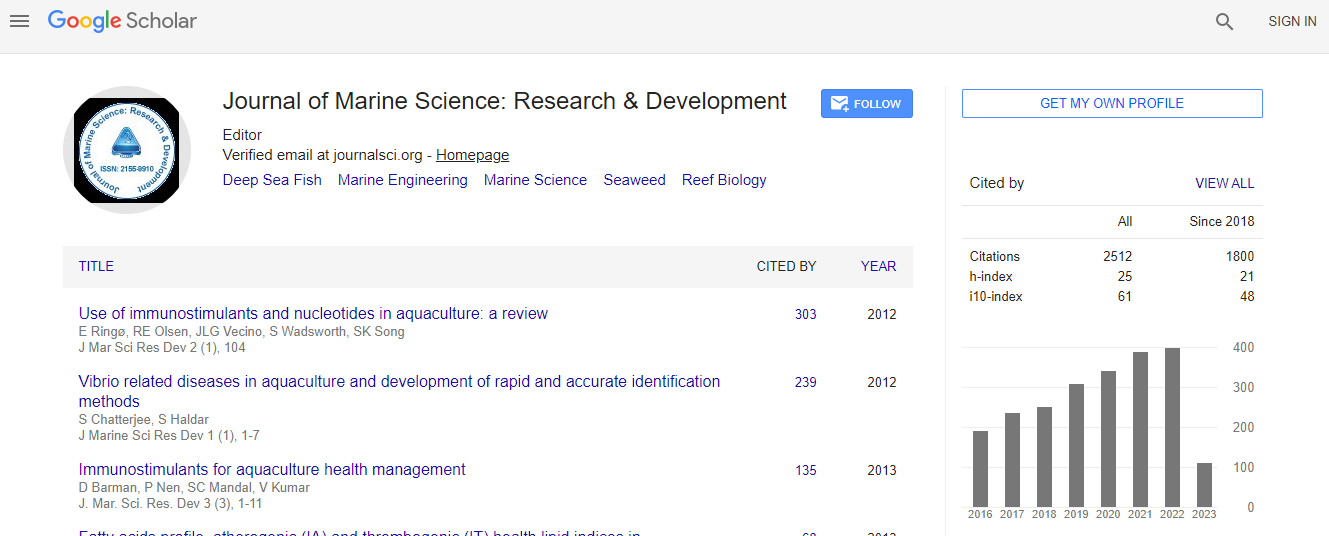Research Article
Activation of Complement System during Ship Voyage and Winter-over Expedition in Antarctica
Anand Prakash Yadav1, Kamla Prasad Mishra1, Himanshi Tanwar1, Narendra Kumar Sharma2, Sudipta Chanda1, Shashi Bala Singh3 and Lilly Ganju1*
1Immunomodulation Laboratory, Defence Institute of Physiology & Allied Sciences, Lucknow Road, Timarpur, Delhi-110054, India
2Peptides and proteomics division, Defence Institute of Physiology & Allied Sciences, Lucknow Road, Timarpur, Delhi 110054, India
3Defence Institute of Physiology & Allied Sciences, Lucknow Road, Timarpur, Delhi 110054, India
- *Corresponding Author:
- Lilly Ganju
Sc. ‘F’, Immunomodulation Laboratory
Defence Institute of Physiology & Allied Sciences
Lucknow Road, Timarpur
Delhi-110054, India
Tel: +911123883163
Fax: +911123932869
E-mail: lilly.ganju65@gmail.com
Received date: September 04, 2015; Accepted date: November 02, 2015; Published date: November 06, 2015
Citation: Yadav AP, Mishra KP, Tanwar H, Sharma NK, Chanda S, et al. (2015) Activation of Complement System during Ship Voyage and Winter-over Expedition in Antarctica. J Marine Sci Res Dev 5:171. doi:10.4172/2155-9910.1000171
Copyright: © 2015 Yadav AP, et al. This is an open-access article distributed under the terms of the Creative Commons Attribution License, which permits unrestricted use, distribution, and reproduction in any medium, provided the original author and source are credited.
Abstract
The Antarctic milieu comes with extreme cold, intense UV radiation, white-outs, varying magnetic fields, sleep deprivation, altered circadian biorhythms, memory loss, isolation,-causing significant physiological and psychological stresses. These conditions closely resemble space travel, with striking similarity in character of peculiar climate, remoteness, constrained living spaces, disturbed sleep cycles, and environmental stress. Due to its extreme weather conditions, and unique geo-location around the South Pole, it is one of the last frontiers for the human race. Thus the geographic isolation and prolonged stressful stay at Antarctica makes it interesting to study the body responses of expeditioners under extreme environmental conditions. Two teams participated in the study, in 28th Indian Scientific Expedition to Antarctica. The first team included members for short “summer” expedition, while the second team as “Winter team”, included members exposed for long term to Antarctic environment. The present study was performed to study the changes occurring in proteomic profile related to immune system. Blood samples were collected in chronological sequence, including i) baseline control ii) during ship journey and iii) at Maitri (Antarctica), during the months of March, May, August and November. The sera samples collected were subjected to differential expression of protein analysis by 2D Gel electrophoresis followed by MALDI-TOF analysis. Catecholamine was also estimated as a measure of stress. Results of 2D gel and MALDI-TOF-TOF analysis revealed significantly increased level of Complement Factor 3 during ship journey and during peak winter in August. Further detailed analysis of complement pathway by ELISA revealed activation of complement system during the acute and chronic stress of Antarctica.

 Spanish
Spanish  Chinese
Chinese  Russian
Russian  German
German  French
French  Japanese
Japanese  Portuguese
Portuguese  Hindi
Hindi 